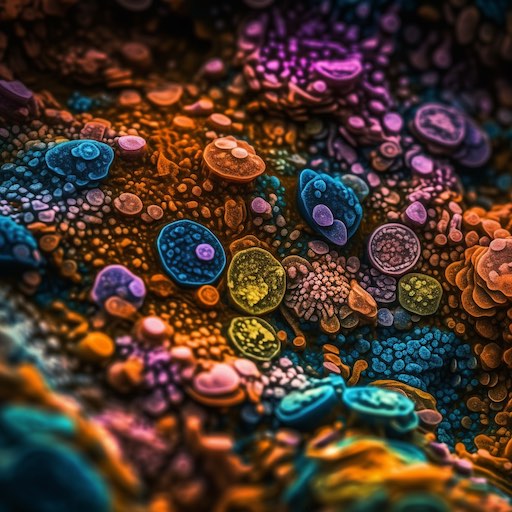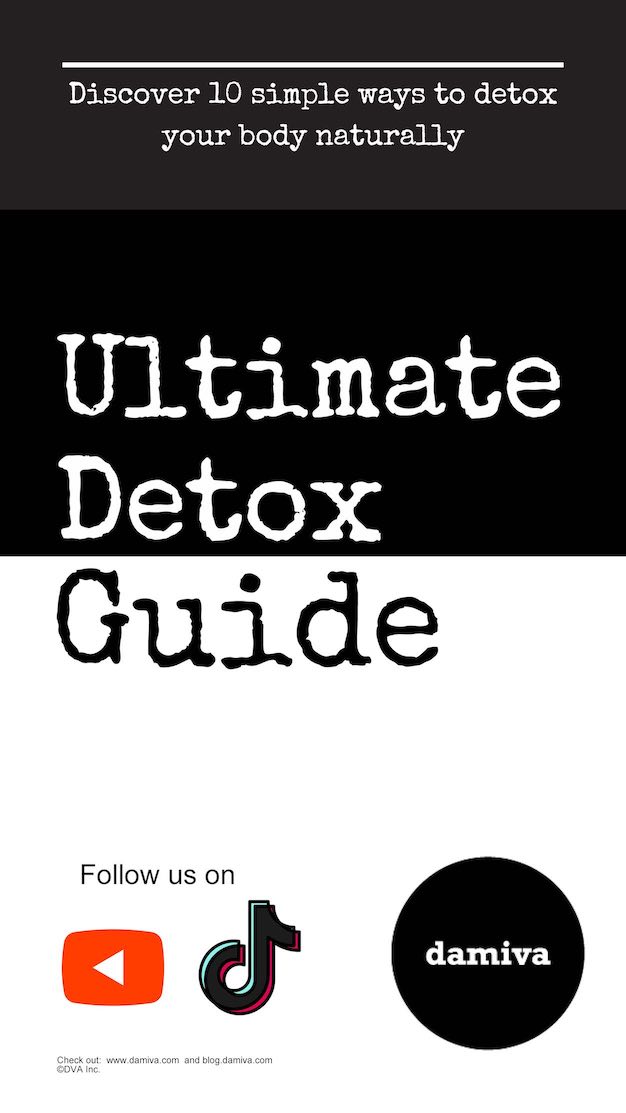Hey Ladies, are you between 45 and 65 years old? Then you better listen… And I mean, listen to your gut. Because a healthy gut is a key to feeling great and looking great during these changing times of menopause. The reason for that is your gut flora, a.k.a. gut microbiome, which has this gut health and gut skin connection.
Embrace a Healthier Menopause: The Power of Gut Health and Skin Flora
Discovering the Gut Microbiome: Your Inner Ecosystem
So what exactly is the gut microbiome? Imagine it as a mini ecosystem living inside your digestive system. It’s packed with trillions of bacteria, and believe it or not, they’re mostly good for us. These little guys are super important because they help break down the food we eat, making sure we get all the nutrients we need.

Plus, they’re like our personal bodyguards, guarding us against bad bacteria and keeping our immune system in top shape. The gut microbiome plays a huge role in our overall health. It is connected to our hormones, our brain, and stress level. That’s why the gut microbiome is especially important when you are a woman 45 plus years old.
By making mindful dietary choices and managing stress and physical activity, we can positively influence our gut health, making our journey through menopause a bit smoother and more comfortable.
Now the cool part is, everyone’s gut microbiome is unique, kind of like a fingerprint. But there’s a common goal in all of us to maintain a balanced, diverse mix of these bacteria.
The Importance of Bacterial Diversity in Your Gut
Why does diversity matter, you might ask? Well, it’s all about teamwork. Different bacteria have different jobs. Some are great at breaking down fiber. Others excel at producing vitamins like vitamin K and B vitamins. And some even help in boosting our immune system. As we age, our body changes, and so does our gut microbiome.
Keeping our gut microbiome healthy and diverse at all ages is key.

Menopause and Gut Health: A Vital Connection
Let’s look at how menopause affects our gut health, and in turn, our overall well-being and skin. First up, menopause and our gut, they’re closely linked. When we hit menopause, our bodies go through a lot of hormonal changes.
These changes don’t just stop at those infamous hot flashes.
They also stir things up in our gut. Our gut flora, those tiny beneficial bacteria living in our digestive system, get affected by these hormonal shifts. This can lead to a bit of a shake-up in how our gut functions. It impacts everything from our metabolism to our susceptibility to certain gut-related health issues.
It’s like a ripple effect. Hormonal changes lead to changes in our gut, which then impact other aspects of our health.
The Gut-Skin Axis: A New Perspective on Skin Health
And here’s an interesting twist: the gut-skin axis or gut-skin connection. It’s this amazing link between what’s happening in our gut and the condition of our skin. And for you, it means the following:
During menopause, your gut flora undergoes changes, and this can show up on your skin. You might start noticing more skin issues than before. So, when we talk about gut health, it’s not just about our stomach or digestion. It’s also about how our skin looks and feels. Our gut health is connected to our skin.
Understanding the Gut–Skin Connection: Key Factors Affecting Your Skin
Okay, get ready – we are diving into the gut-skin connection. If you would like your skin to look better, read….
The gut-skin axis, or gut-skin connection, is a complex interaction involving our gut microbiome, immune system, and skin. Changes in the gut microbiome can influence skin health through various mechanisms.
First of all, inflammation and immune response.
The gut microbiome plays a critical role in regulating the body’s immune response. An imbalanced gut microbiome, known as dysbiosis, can trigger systemic inflammation, which can manifest in the skin as acne, eczema, or rosacea.
Second, Hormonal fluctuations.
Estrogen influences the composition of gut microbiota and helps maintain the integrity of the gut lining. Changes in estrogen levels can therefore disrupt gut health, which in turn may affect skin appearance. The decrease in estrogen during perimenopause and menopause could lead to gut dysbiosis and a weakened gut barrier, allowing harmful substances to enter the bloodstream and potentially cause skin issues, such as increased dryness or sensitivity.
Third, Nutrient absorption.
Gut health is crucial for the absorption of nutrients that are essential for skin health, such as vitamins A, C, E, and D, as well as antioxidants and fatty acids. Menopause related changes of the gut microbiome can affect how well these nutrients are absorbed, which then impacts your skin health.
Four, Stress and skin.
The menopausal transition can be a stressful period, which can affect your gut health. Stress can alter your gut flora and exacerbate skin conditions. Managing stress through lifestyle changes, diet, and perhaps probiotics can help you maintain both gut and skin health.
Five, Skin hydration and aging.
As women age, especially during menopause, skin tends to become drier and less elastic. Good gut health can help here. It can support skin hydration and elasticity by aiding in the production and absorption of hyaluronic acid and collagen, which are vital for youthful skin.
So, as you see, the gut flora is super important for your health and your looks, especially when you are going through menopause.

Feeling You Have a Right to Safe Beauty & Fem Care?
If so, it may be time for a change. It starts with knowledge. We have a few suggestions in our new guides.
Some of the Best Ways to Kill Your Gut Flora.
Now let us look at the best ways to actually kill your good gut flora.
Let’s start with diet. There are some foods that are pretty sure to lead to gut problems and exacerbate menopause symptoms. Here they are.
First: highly processed foods. Think of processed snacks, ready to eat meals, and canned foods. These foods should not be called foods. Let’s call them gut flora killers. They tend to lack fiber and nutrients that are essential for a healthy gut. They often contain additives, preservatives, and artificial ingredients that can disrupt the balance of gut bacteria.

Another gut health killer, or rather just killer, is sugar.
If you drink sugary drinks, eat sweets, and baked goods during menopause, that can lead to an overgrowth of yeast like candida in the gut, which might exacerbate menopausal symptoms like hot flashes and fatigue.
It can also trigger inflammation throughout the body.
Number three on the list, saturated and trans fats often found in fried foods, baked goods, and certain processed snacks, can change the gut microbiome for the worse.
They can promote the growth of harmful bacteria and contribute to inflammation. So a diet high in fried foods? Pastries? This might aggravate inflammatory conditions often experienced during menopause, such as joint pain or skin inflammation. okay, and then a couple of other food products that are on the list of gut health killers.
Some studies suggest that artificial sweeteners can negatively impact gut bacteria, so better avoid them. Alcohol can damage the gut lining and alter the microbiome. Refined carbohydrates, like in white bread and pastries, can disrupt your gut balance.

Do you know the three main ways that your body gets in touch with harmful chemicals?
Chemicals that can hurt your gut health, your skin health, your mental health, and immune system?
Knowledge is Power!
The Ultimate Detox Guide will tell you how to lower your exposure to harmful chemicals!
More Factors Harming Your Gut Flora
Apart from poor diet, here are some more ways to harm your gut flora.
- Excessive antibiotic use. While antibiotics are crucial for treating bacterial infections, their overuse can harm beneficial gut bacteria.
- Lack of sleep. Poor sleep patterns can disrupt the gut microbiome, affecting its diversity and function.
- Chemicals in skin care products. Certain chemicals commonly found in moisturizers, body lotions, and other skin care products can be absorbed through the skin and disrupt the gut microbiome. Better use chemical free, aka water free lotions.
- Chronic stress. Long term stress can negatively impact your gut microbiome, altering the balance of beneficial and harmful bacteria.
- Excessive alcohol consumption. Drinking alcohol excessively can damage the gut lining and alter the composition of the gut microbiome.
- Lack of physical activity. A sedentary lifestyle can lead to changes in the gut microbiome, reducing its diversity, which then may lead to negative health outcomes.
Maybe this was mean to list all these ways to harm your gut health, which would make you feel and look worse during menopause. But you better know your enemies, right?
Let’s change gears now and look at what you can do:, how should you adjust your diet for great gut health during menopause?
Navigating Menopause: Adjusting Your Diet for Gut and Skin Health
Focus on whole, unprocessed foods. Fruits, vegetables, and lean proteins can support a healthy gut.
Increase fiber intake. Fiber feeds beneficial gut bacteria and supports regular bowel movements.
Hydrate adequately. Water is essential for gut health and can help manage menopause-related symptoms like dry skin. I have a video on YouTube that is about foods to eat during menopause. Check it out.
By the way, something for you, a little gift!!!
I am just in the middle of publishing my book. It’s about How women can balance their hormones. One part is about food and diet, of course.
Follow this link and enter your email.
I will send you this part of the book for free once the book is published. It has many concrete, practical tips and recipes and will help you feel better during menopause or times of Big hormonal fluctuations.
Annette, Damiva Lead for Health & Wellness

Beyond Diet: Other Key Factors for a Healthy Gut Microbiome
There are other important aspects to maintain the gut microbiome healthy when you’re going through menopause. Stress and stress relief methods, physical activity, and your hormone system. Read more about this here and here. The connection between gut health and hormones is fascinating, but it is actually not just fascinating. It’s absolutely crucial for understanding our bodies better during the time we go through the menopausal changes.
The stress and hormone topic is mind-blowing, and there are super effective ways to handle this well. This is a real eye-opener, so don’t miss my video on it. Hit the bell and subscribe to my channel to receive the notification when the video is published.
The Gut-Skin Axis and Menopause: A Comprehensive Look
The gut-skin axis is particularly significant during the perimenopausal and menopausal phases of a woman’s life. The interplay between gut health and hormonal changes can have profound effects on skin health.
By understanding and nurturing this connection, women can better manage skin issues during this transition, ensuring healthier skin through and beyond menopause.








